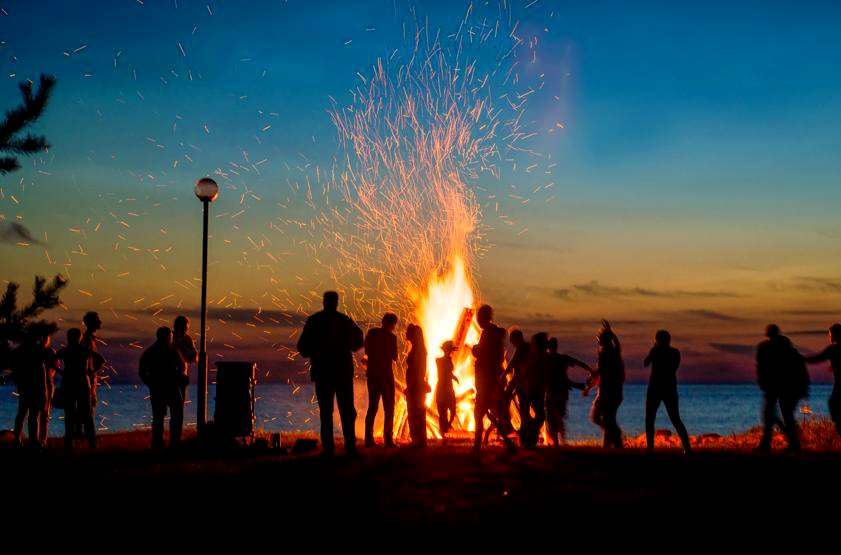San Juan is a festival celebrated on the night / morning of 23rd / 24th of June. A magical night that welcomes the summer season, the celebrations take place during the shortest night of the year; the summer solstice. The festivities are usually held on the beach with friends around bonfires with drinks, food and fireworks.
Legends, tradition and rituals are connected by a common elements: fire and water. Fire purifies and water recuperates, refreshes, and rejuvenates. Young people jump over fires which, according to tradition, cleanses the body and the soul. Jumping in the sea at midnight is supposed to be a way to wash away evil spirits.
Every region in Spain has different local traditions, however all of them are related to fire and water. After midnight, for example, people wash their faces and feet three times in order to be granted three wishes and for a happy twelve months thereafter. Bathing at this time is also said to be beneficial for skin complaints.
Traditionally, the Spanish did not visit the beach until this day in each year. Thousands of people wandering into the water after midnight with the haze of bonfires everywhere is quite a sight.
Other rituals include, burning a piece of paper with your lovers name on it, or burning something old and personal to leave behind bad spirits from the past and start a new phase.
Dancing and praying around bonfires, and in some areas burning a rag man, which originally symbolized Judas Iscariot. Pagan and religious traditions merge and blend in this fascinating celebration.
The largest celebration takes place in Alicante, where it is the most important festival in the city. The San Juan bonfires festival in Alicante originated in 1928. It was started by Jose María Py, who felt that Alicante needed an important fiesta. She came up with an idea to combine bonfires with a Valencian tradition known as the “falles“, a traditional celebration held in commemoration of Saint Joseph.
Other countries such as Argentina, Chile, Paraguay, Perú, Bolívia and Cuba celebrate this date influenced by Spaniards, Portuguese and other European immigrants.
Leave a Reply
You must be logged in to post a comment.


